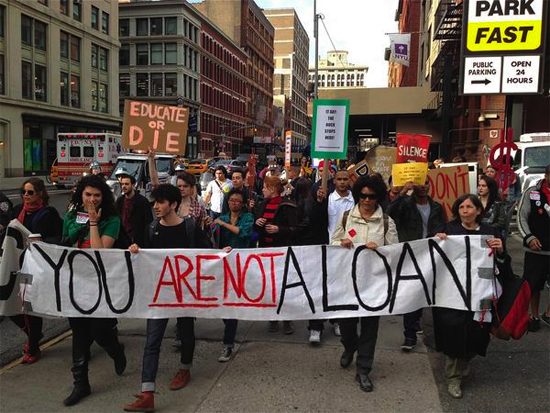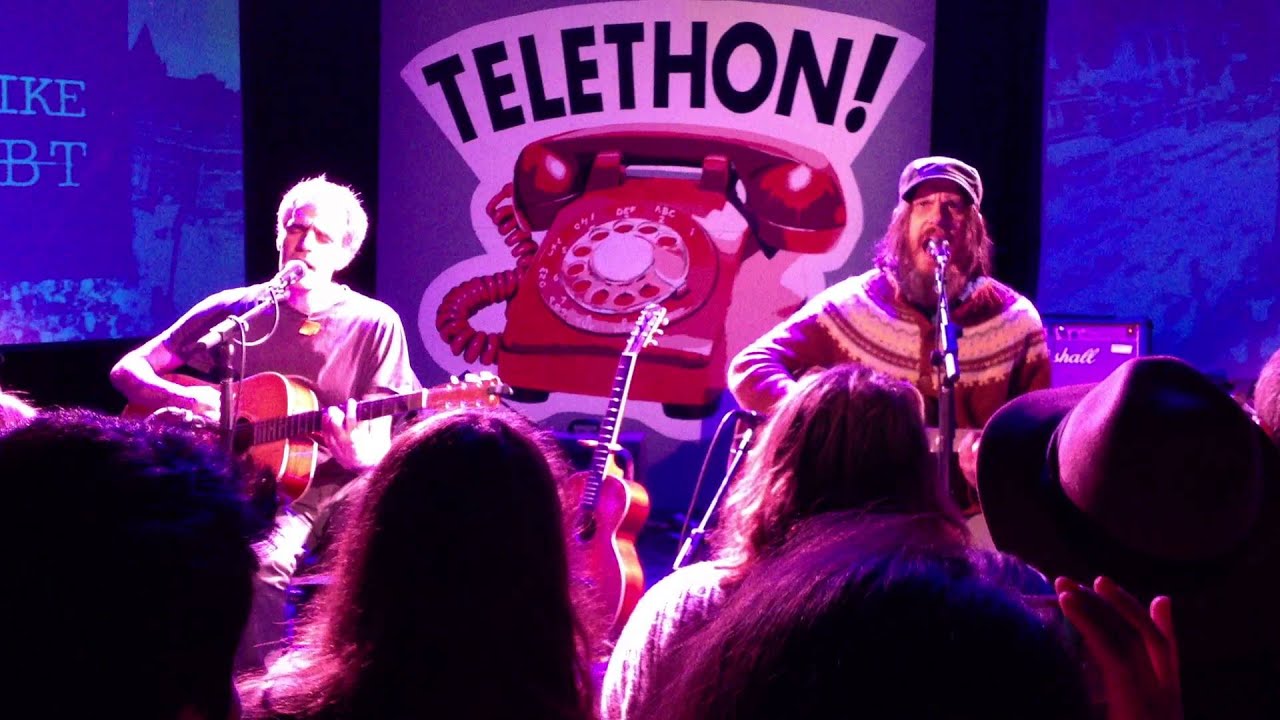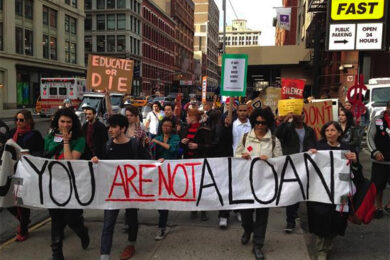On October 15th, 2011, I was in the heart of Luxury City with over ten thousand others, a single pixel in what was, to this day, the Occupy movement’s most dramatic and well-attended feat of strength; a global round-robin of fragmented catharsis that took place concurrently in 900 cities around the world. Most, or at least very many, in Times Square that day seemed more curious than radicalised, seeking spectacle and the right to say that ‘they were there when…’. But the motivations of any one person that day were of little importance. It was the top of the movement’s bell curve, and together we were the amorphous mosaic of the 99%.
One month ago, October 15th as this is written, I was at home. And, like most of the people who were in Times Square that day, the Occupy movement wasn’t at the forefront of my mind. A person could be forgiven for completely forgetting about it somewhere between March and right now of this year. Most notably, the left and pragmatic middle of the U.S. were far more focused on the presidential election – its ferris wheel of characters from the Republican party and its eventual representative, our poster boy of the 1% – as well as the faint, end-of-tunnel glow of a slightly recovering economy. Now, the Occupy movement has returned, and last night it destroyed five million dollars.
Strike Debt is the first thing Occupy has produced that is not only pragmatic but brilliant, rhetorically powerful, easily relatable and explainable, and truly revolutionary. It is Occupy’s promise made action. To explain: In the Rube Golbergian world of banking it is common practice for banks to sell packages of outstanding debt to collection agencies – many of which those banks themselves (yes, they are people) own – for a fraction of their "worth." Those collection agencies then attempt to find, secure, and profit from those packages, turning a one dollar investment into twenty dollars when collected. It’s a mint. Strike Debt is, in Guy Picciotto’s words during his performance with Jeff Mangum, "a real trojan horse move." What Strike Debt is doing is exactly the same in practice and diametric in purpose to the collection agencies’ practices. When these indiscriminately bundled debt packages are bought by Strike Debt, they then rip them up and throw them away, erasing the monies owed by a random chunk of (lucky) people. (Obviously there are details here beyond the scope of a show review, but for the curious Strike Debt has written a manual.) The foundational idea being that debt is a predatory lien on the lives and livelihoods of, basically, everyone.
To celebrate this inspired idea, Strike Debt organized a "global" telethon-style fundraiser and variety show at the always amorphously booked Greenwich Village venue Le Poisson Rouge. They called it The People’s Bailout. And it proves to be (mostly) a success.
There’s Vermin Supreme, the ultra-failed presidential candidate with a boot on his head, being interviewed outside of the venue. There’s a man in a woven rasta cap asking the queued to if they "want to donate to the marijuana foundation? It’s the most honest foundation you got out here!" Both true and not. Inside, Occupy and Strike Debt have transformed the corridors and performance areas into slightly boozy, informational kiosks of the kind you’d expect at a politically motivated rally; high production value posterboards with infographics and print-outs and pamphlets. Some things will never change.
Once inside, the show portion of the show begins straightaway with the Rude Mechanical Orchestra‘s second line-ish stomp. They headbang, they have a dedicated dancer, they play polka – making it known that a somber evening isn’t in the cards. Except when it absolutely, back-numbingly is. By necessity the proceedings carry on a little dry. It’s not a fucking talk show, though they’ve done their best to make it feel like an unmoored version of one.
Sprinkled throughout the evening are speakers, the majority of whom I’m sorry to say are very boring – by the end of the night I’m hoping for all debt the world over to be stricken just so I’ll never have to hear the word again – two (!) magicians, a little matador lady reciting ‘Bohemian Rhapsody’, a gospel choir, the all-female Mariachi Flor de Toloache. There’s a slowly drunken MC Lizz Winstead (co-creator of The Daily Show), and the excellent, tuxedoed MC David Rees. Lee Ranaldo plays two of his not-great solo works. There’s an Andy Kaufman aping "accountant" doing a strip tease slash yo-yo performance. There’s comedian Hari Kondabalou equating white chocolate to racism (agreed), comedian Janeane Garofolo railing against sidewalk clipboard activists (agreed), adorable nuns breaking away from the Vatican. It’s a lot to process, and with the musicians limited to two songs, it’s a bit unsatisfying if you’re there for the names. Most don’t seem to be.
But for those that were, here’s your paragraph. TV On The Radio’s Tunde Adebimpe and Kyp Malone work through ‘Satellite’ and ‘Wash the Day’ as lugubrious and messy as ever. TV On The Radio isn’t known for the live show, we can all agree. Das Racist’s Kool A.D. turned in a temperate performance of his solo ‘Dum Diary’ that makes the night’s other rap act, Holistic, look foolish – even though they’re the most energetic performers of the night. The Elephant 6-associated Music Tapes performed with director John Cameron Mitchell (Hedwig and the Angry Inch), singing the ’20s song (made relatively more famous by Michael Bublé) ‘Till Then’, saying "we thought we’d do a song from the point of view of a healthy credit report." And the main event, Guy Picciotto and Jeff Mangum, are quiet and straightforward, Mangum’s voice a little creak and wary as he and Picciotto performed, "for the first time in fifteen years," ‘O Sister’, the Guy-sung ‘Endless Ransom’ and The Tall Dwarfs’ ‘Sign the Dotted Line’. Their set was, as everyone else’s, improbably short and predictably acoustic.
By the end The People’s Bailout had raised enough money, over $200,000, to wipe from the books over $5 million in outstanding debt. (The outstanding credit card debt of American consumers is about $850 billion, mortgage debt around $13.5 trillion. So, at the rate of $5 million worth of debt being erased per day it would take two million, seven hundred thousand days, or 7,397 years, to allay the entire mortgage debt of the United States. Just FYI!)
It’s a little conflicting, it has to be said, to see the worlds of grand grassroots activism and popular music meet when their "business" interests, especially now, are so loggerheaded. Lizz Winstead made her treasure via Viacom, which is owned by National Amusement, which is in turn owned by the (presumably evil?) banking giant Crédit Lyonnais. But broad strokes move folks, not some untenable breakdown of the inherent conflicts of being an artist in the early 21st century. But it’s worth raising the question, at the very least. Is there much difference between a bank and a media conglomerate, as far as damage done? Yeah, there is. Sort of. Unless that conglomerate happens to be owned by one of those banks. Or not.
The future is complicated, televised, and fraught with danger – and that’s why so many forgot about Occupy over the course of this year. Just: be careful to one another.





